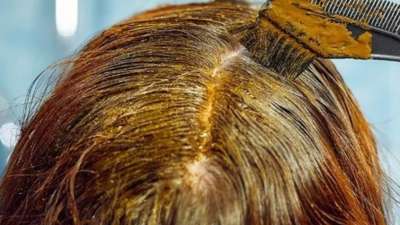Applying henna: Applying henna (f henna) in winter can sometimes be harmful for you. This is because henna has a cold effect and its use in this season can cause cold and cough. Apart from this, its use can also trigger allergies in people who have bronchitis and asthma problems. In such a situation, you should avoid using henna in winter and if you are using it, then you should keep some things in mind.
If you use henna in winter as a regular, then it can cause cold and cough. In such a situation, applying henna mixed with clove water will enhance the color of the hair, but it will not cause cold. So, to use henna in winter, first prepare clove water and then mix henna in this water and apply it on the hair.
Often people mix lemon and curd in henna. So that, it helps in removing problems like dandruff and skin infection. In such a situation, you can use alum water instead of it. It will have two benefits. First, it will help in blackening the hair quickly. Secondly, it will also be effective in the problem of scalp infection and dandruff.
Apply mehendi during the sunlight or say in the afternoon. It will have two benefits. First, you will not feel cold. Secondly, it will dry quickly and you will be able to avoid the cold. Apart from this, keep in mind that avoid applying mehendi on hair on the day when there is no sunlight. Also try not to use it too much and instead use other things that help in blackening the hair. Like you can apply onion oil, eat amla or apply amla water on hair.
 Indian Thought Latest News & Views
Indian Thought Latest News & Views



